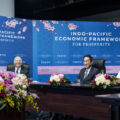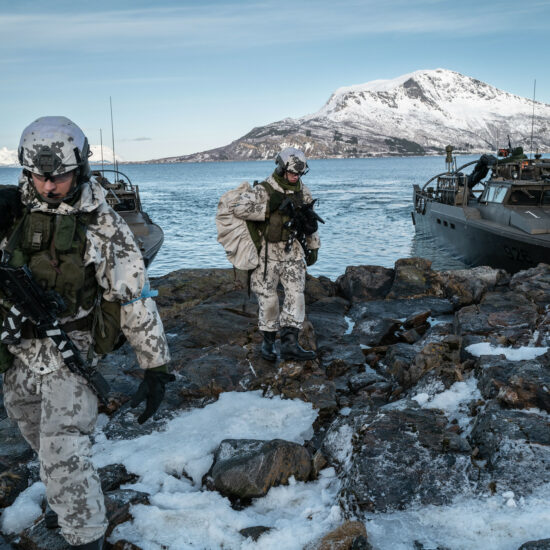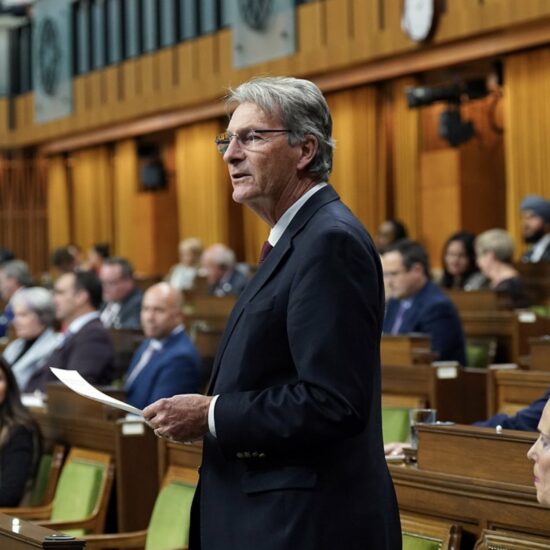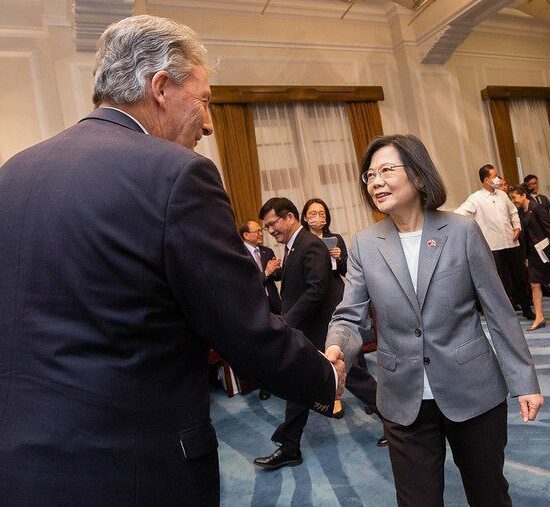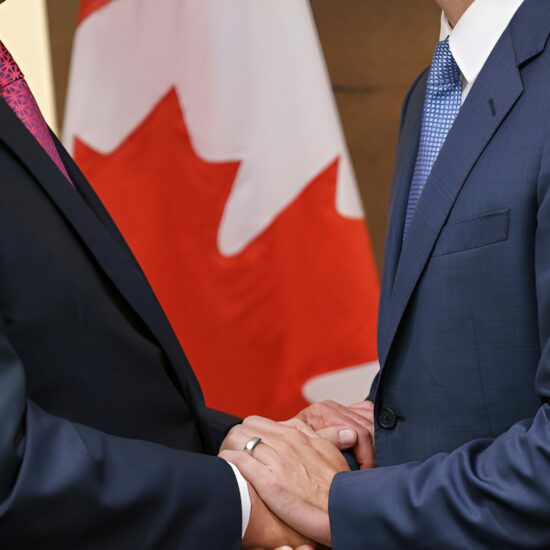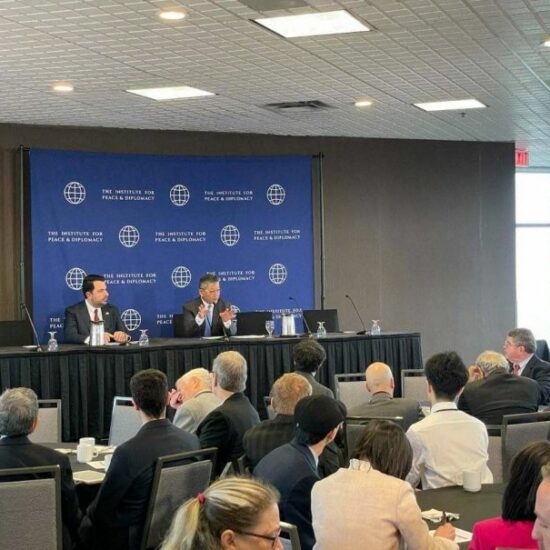
The recent return of the two Michaels has naturally led to speculation about the future of Canada-China relations. Some view the release of Huawei executive Meng Wanzhou as an opportunity to reset Ottawa’s relationship with Beijing, while others argue for a tougher approach toward China.
Yet while Canada undoubtedly requires a more detailed and coherent China strategy, the Meng affair was ultimately a manifestation of the intensifying competition between China and the United States. Canada needs more than a strategy for contending with a rising China: it needs a clearer strategic posture to guide it through a deepening and accelerating great power rivalry.
To admit that Sino-American competition has exerted pressure on Canada is not to argue in favour of a policy of equidistance between Beijing and Washington. As Kim Richard Nossal of Queen’s University rightly noted during a panel discussion that IPD hosted earlier this month, Canada’s primary interest will always be to maintain good relations with the US. But as Canadian Senator Yuen Pau Woo asserted during the same panel, this does not imply that Ottawa should share the assessment, advanced most recently by Joe Biden’s pick for ambassador to Canada, that China represents an “existential threat”.
Prioritizing good relations with Washington and defending US global primacy at all costs are not the same thing – a fact that appears to be understood in Ottawa. Foreign Affairs Minister Marc Garneau recently described Canada’s approach towards China as being rooted in a balance between four Cs: “coexist”, “compete”, “cooperate” and “challenge”. While this is far from a fully developed strategy, the placement of coexistence at the front of the list contrasts with US Secretary of State Antony Blinken’s tougher assertion that Washington’s relationship with Beijing will be “competitive when it should be, collaborative when it can be, and adversarial when it must be”.
The release of the two Michaels comes on the heels of the Biden administration’s withdrawal from Afghanistan and its launching of the AUKUS alliance over France’s objections. While many Canadians find themselves lamenting their country’s exclusion from AUKUS, some of Washington’s European partners see both moves as pointing to an increasingly unilateralist US foreign policy, irrespective of who sits in the White House. In short, the success of Canadian foreign policy should not be measured by whether Canada is invited to join US-led initiatives.
Canada’s interests are distinct from those of its southern neighbour. While Ottawa may have an interest in balancing against the security implications of China’s growing power, this does not equate to supporting a strategy of containment. Since the collapse of the Soviet Union, the international order has become global in scope, no longer divided into separate blocs as during the Cold War. If Canada is sincere in its oft-mentioned desire to strengthen a rules-based international order, then such an order cannot be premised on the exclusion of one of the world’s most powerful states.
Competition between the US and China will likely be the dominant trend of the 2020s and possibly beyond. As such, one of the core imperatives of Canadian foreign policy will concern how to navigate this rivalry in a fashion that affords Canada, at the very least, a modicum of maneuverability. This touches on whether Canada can survive the decades to come as an independent international actor – perhaps an even more critical concern than the security implications of an increasingly assertive China.
Yet Canada remains extremely underinvested in the Asia-Pacific region, with its security posture in recent decades having centred heavily on Atlanticism and continentalism. Perhaps this allows Ottawa to persuade Washington that its utility as an ally lies in the Euro-Atlantic theatre, affording it the opportunity to pursue a distinct approach toward Asian affairs from that of the United States, centred on soft power and trade. That said, with so few resources allocated toward Asia, Canada is unlikely to play a meaningful role in shaping the rules governing the Pacific theatre and, in turn, the context informing the Sino-American contest.
The likely result, Prof. Nossal predicts, is a Canadian posture rooted largely in North American “isolationism” for the remainder of this decade. This would continue the longstanding trend of decline in Canada’s international profile and psychological investment in global affairs. Canada’s peacekeeping budget has been declining since the 1990s. It has not conducted a foreign policy review since 2005, despite profound changes in the structure of the international order. It has not served on the UN Security Council since 2000 and, following its second consecutive failed bid, has made no plans to vie for a seat for the foreseeable future.
This paints a bleak picture for the future of Canadian foreign policy: negligible influence in the world’s central geo-strategic theatre, a waning presence in multilateral institutions, and an increasingly one-sided and unpredictable relationship with the US. Nor can Canada count on a collective “West” to serve as a power multiplier: Euro-American divisions over AUKUS and Franco-Turkish tensions in the Mediterranean cast serious doubt on the potential for a sustained, united allied posture toward Russia and China.
Perhaps Canadian decisionmakers have been caught off-guard by the speed of global change: the rise of Asian economies has rapidly – and perhaps unexpectedly – transitioned to a geopolitical contest centred on the Pacific. While many predicted a Pacific century, not everyone anticipated a Pacific decade as soon as the 2020s. Naturally, there is disappointment that China has deviated from the path of greater economic and political openness in recent years. But as it turns out, Asians are just as interested in setting the terms of global order as they are in representing an economic opportunity for Westerners.
However, this should not distract Ottawa from making the rational calculation that its interests are best served by a de-escalation of tensions between Washington and Beijing. Donald Trump’s departure from the White House does not change the fact that Canada continues to face strategic pressures from both China and the US. What to do about an increasingly populist neighbouring power is at least as important a question for Canadian security over the long term as how to contend with a rising authoritarian state situated all the way across the world’s largest ocean.
During the Cold War, Canada compensated for its lack of hard power through other commitments aimed at stabilizing a fractured order, such as international peacekeeping. With few resources devoted to Pacific-theatre geopolitics today, Canada’s contribution must once again be advanced in other domains, including technology, trade and multilateral institutions. In some cases, this will require careful and managed decoupling. In others, it calls for collective efforts to prevent the bifurcation or hollowing out of the international order. But in all cases, it will necessitate the development of a theory of international order unique to Canada’s interests.
Dr. Zachary Paikin (@zpaikin) is a non-resident research fellow at IPD and a researcher at the Centre for European Policy Studies in Brussels (CEPS).

